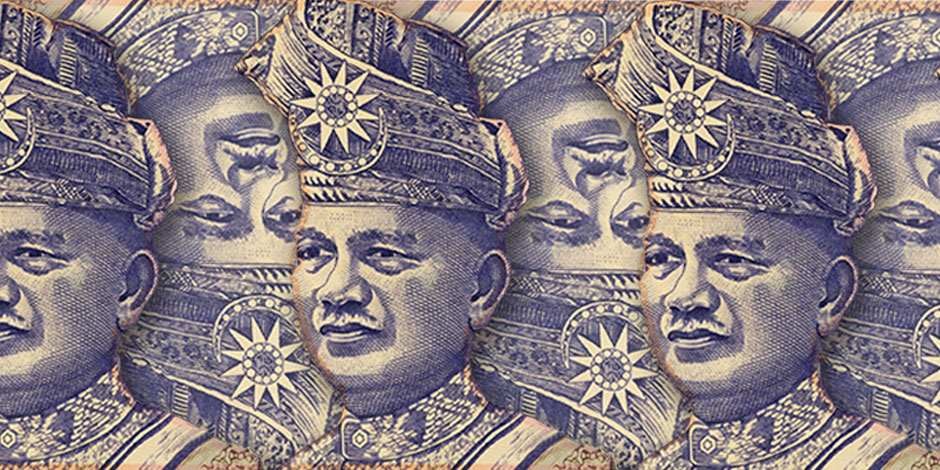News & Articles Pressure building against ringgit
Pressure building against ringgit
18 Nov 2015

KUALA LUMPUR, Nov 18, 2015:
The ringgit opened lower in early trade against the US dollar as the greenback firmed near its seven-month high versus a basket of major currencies.
At 9.20am, the ringgit was quoted at 4.3850/3900 against the US dollar from 4.3800/3870 yesterday.
A dealer said the US dollar gained amid a weak euro on expectations that the European Central Bank will ease monetary policy in December.
The local note was also traded lower against other major currencies.
It depreciated against the Singapore dollar to 3.0778/0835 from 3.0754/0818 yesterday and eased against the yen to 3.5526/5581 from 3.5520/5591.
It fell versus the British pound to 6.6670/6759 from 6.6396/6511 yesterday and slipped against the euro to 4.6643/6705 from 4.6629/6708.
Retures reported the US dollar climbed to a seven-month peak yesterday, as a rise in US inflation reinforced expectations that the Federal Reserve will raise interest rates next month.
The dollar touched a 10-month high versus the Swiss franc and edged up against the euro and yen after a report showed US consumer prices increased in October after two straight months of declines.
Weaker-than-expected industrial output data pared the US dollar’s gains later in the session, but the greenback overall remained close to multi-month highs against major currencies.
“I think the market has the mindset that there is almost nothing at this stage of the game that is going to dissuade the Fed from going in December,” said Lane Newman, director of foreign exchange at ING Capital Markets in New York.
“That’s the general consensus. And today’s number as anything else has not changed that course of action or expectation from what I can see.”
The Fed is scheduled to release later tonight minutes of the October monetary policy meeting, which should shed light on the some of the changes in the US central bank’s statement.
Brian Daingerfield, currency strategist, at RBS in Stamford, Connecticut said the Fed’s monetary policy committee “may signal greater confidence in the global outlook after policy easing by the People’s Bank of China and a strong signal of new accommodation from the European Central Bank.”
The ringgit opened lower in early trade against the US dollar as the greenback firmed near its seven-month high versus a basket of major currencies.
At 9.20am, the ringgit was quoted at 4.3850/3900 against the US dollar from 4.3800/3870 yesterday.
A dealer said the US dollar gained amid a weak euro on expectations that the European Central Bank will ease monetary policy in December.
The local note was also traded lower against other major currencies.
It depreciated against the Singapore dollar to 3.0778/0835 from 3.0754/0818 yesterday and eased against the yen to 3.5526/5581 from 3.5520/5591.
It fell versus the British pound to 6.6670/6759 from 6.6396/6511 yesterday and slipped against the euro to 4.6643/6705 from 4.6629/6708.
Retures reported the US dollar climbed to a seven-month peak yesterday, as a rise in US inflation reinforced expectations that the Federal Reserve will raise interest rates next month.
The dollar touched a 10-month high versus the Swiss franc and edged up against the euro and yen after a report showed US consumer prices increased in October after two straight months of declines.
Weaker-than-expected industrial output data pared the US dollar’s gains later in the session, but the greenback overall remained close to multi-month highs against major currencies.
“I think the market has the mindset that there is almost nothing at this stage of the game that is going to dissuade the Fed from going in December,” said Lane Newman, director of foreign exchange at ING Capital Markets in New York.
“That’s the general consensus. And today’s number as anything else has not changed that course of action or expectation from what I can see.”
The Fed is scheduled to release later tonight minutes of the October monetary policy meeting, which should shed light on the some of the changes in the US central bank’s statement.
Brian Daingerfield, currency strategist, at RBS in Stamford, Connecticut said the Fed’s monetary policy committee “may signal greater confidence in the global outlook after policy easing by the People’s Bank of China and a strong signal of new accommodation from the European Central Bank.”
Source: The Rakyat Post
Latest Posts
-
Gong Xi Auction Fair Draws Strong Interest from Both First-Time and Experienced Buyers
-
Gong Xi Auction Fair: Start the Lunar New Year with Smart Property Investments
-
Highest Bidder Strikes Gold at NCM Co November Auction Carnival 2025
-
November Auction Carnival 2025 Returns — Nearly 600 Properties Up for Grabs!
-
SkyWorld raih emas pertama di Anugerah ESG The Edge Malaysia 2025